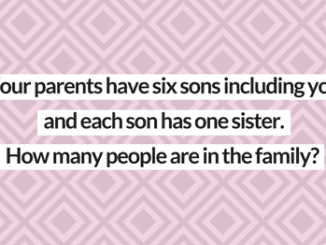If you’re a regular drinker of diet soda, you might want to pause before cracking open your next can. Recent insights from a well-known gastroenterologist suggest that the risks of diet soda might outweigh its benefits. While many opt for diet soda to cut down on sugar intake, it turns out this “healthier” choice could come with its own set of problems.
The Surprising Health Risks of Diet Soda

Dr. Saurabh Sethi, trained at both Harvard and Stanford, has over two decades of clinical experience. In a recent video posted on TikTok, he outlined several alarming reasons to reconsider consuming diet soda regularly. Dr. Sethi’s insights are backed by scientific studies, making his warnings hard to ignore.
1. Increased Risk of Heart Disease and Stroke in Women
The first major issue Dr. Sethi highlighted is diet soda’s potential impact on women’s heart health. According to a 2019 study from the American Heart Association and American Stroke Association, women who consume two or more diet sodas per day face a significantly higher risk of heart attack and stroke.
- Why This Matters: The study found that this risk is particularly high among women over 50 who have no prior history of heart disease or diabetes. Artificially sweetened drinks, including diet sodas, were directly linked to higher incidences of cardiovascular events.
- What to Consider: If you’re drinking multiple cans of diet soda a day, it may be time to rethink your choices, especially if you’re in the at-risk age group.
The increased risk of heart disease contradicts the common belief that diet sodas are a safer alternative to regular sodas.
2. Potential Damage to Kidney Health
Dr. Sethi’s second concern revolves around diet soda’s impact on kidney health. The high phosphorus content in many diet sodas can contribute to chronic kidney disease over time.
@doctorsethimd Doctor Sethi : Are Diet Sodas Better Than Regular Sodas? 🥤🤔 #drink #medical ♬ Rockin – Chris Alan Lee
- Why This Matters: Phosphorus is commonly added to diet sodas to enhance flavor and shelf life. However, excessive intake of this mineral can harm the kidneys, which filter out toxins from the blood. When the kidneys are overworked, it can lead to chronic kidney disease, a serious health issue that can impact your overall well-being.
- What to Consider: For those already at risk of kidney problems or with a family history of kidney disease, cutting back on diet soda could be a wise move.
The potential long-term impact on kidney health adds yet another reason to think twice before reaching for that diet beverage.
3. Disruption of Gut Health
The next point Dr. Sethi raised is how diet sodas can negatively impact gut health. Our gut is home to trillions of beneficial bacteria that help maintain digestion, immunity, and overall health. However, the artificial sweeteners found in diet sodas can disrupt this delicate microbiome.
- Why This Matters: Artificial sweeteners, like aspartame and sucralose, can interfere with insulin sensitivity and reduce the diversity of beneficial bacteria in the gut. This disruption can lead to digestive issues, weakened immune responses, and a greater susceptibility to diseases.
- What to Consider: If you’re struggling with digestive problems or frequent infections, diet soda could be a contributing factor.
A healthy gut is crucial for more than just digestion—it plays a role in overall wellness, making this an important consideration for diet soda drinkers.

4. Increased Cravings and Overeating
One of the most surprising revelations from Dr. Sethi is that diet sodas might actually make you crave more high-calorie foods. You’d think that a “diet” drink would help control weight, but the opposite might be true.
- Why This Matters: A 2021 study published in JAMA Open Network found that sucralose, a common artificial sweetener in diet sodas, can heighten appetite by triggering stronger neural reward responses in the brain. This means that drinking diet soda could lead to overeating, as it encourages cravings for high-calorie foods.
- What to Consider: If you’re trying to manage your weight, diet soda may actually sabotage your efforts by making you hungrier.
Diet soda’s effect on appetite control is a significant concern, especially for those who drink it as part of a weight loss strategy.
No Nutritional Benefits: The Final Verdict
Dr. Sethi’s closing argument was simple: Diet sodas offer no nutritional benefits. While they might be free of calories, sugar, or carbs, they also provide nothing beneficial to your body. You’re essentially consuming chemicals that could be causing more harm than good.

- Why This Matters: When choosing a beverage, it’s crucial to consider its overall impact on your health. Diet sodas might satisfy a craving, but they don’t contribute to hydration, nutrient intake, or overall wellness.
- What to Consider: Instead of reaching for diet soda, try healthier alternatives like flavored water, herbal teas, or even sparkling water with a splash of natural fruit juice.
Why Moderation Is Key
While Dr. Sethi’s warnings might sound alarming, it’s essential to remember that moderation is crucial. Having a diet soda occasionally is unlikely to cause significant harm, but making it a daily habit could have long-term effects.
Conclusion
The information shared by Dr. Sethi offers compelling reasons to cut down on diet soda. From increasing the risk of heart disease and kidney issues to disrupting gut health and boosting cravings, the potential downsides are hard to ignore. While diet soda might seem like a healthier choice compared to regular soda, the health risks revealed by studies suggest otherwise.
As with many dietary habits, the best approach is moderation. Consider healthier alternatives, pay attention to how your body responds, and always consult with your healthcare provider if you’re unsure about your beverage choices. Your health should always come first—so think twice before making diet soda a regular part of your day.


